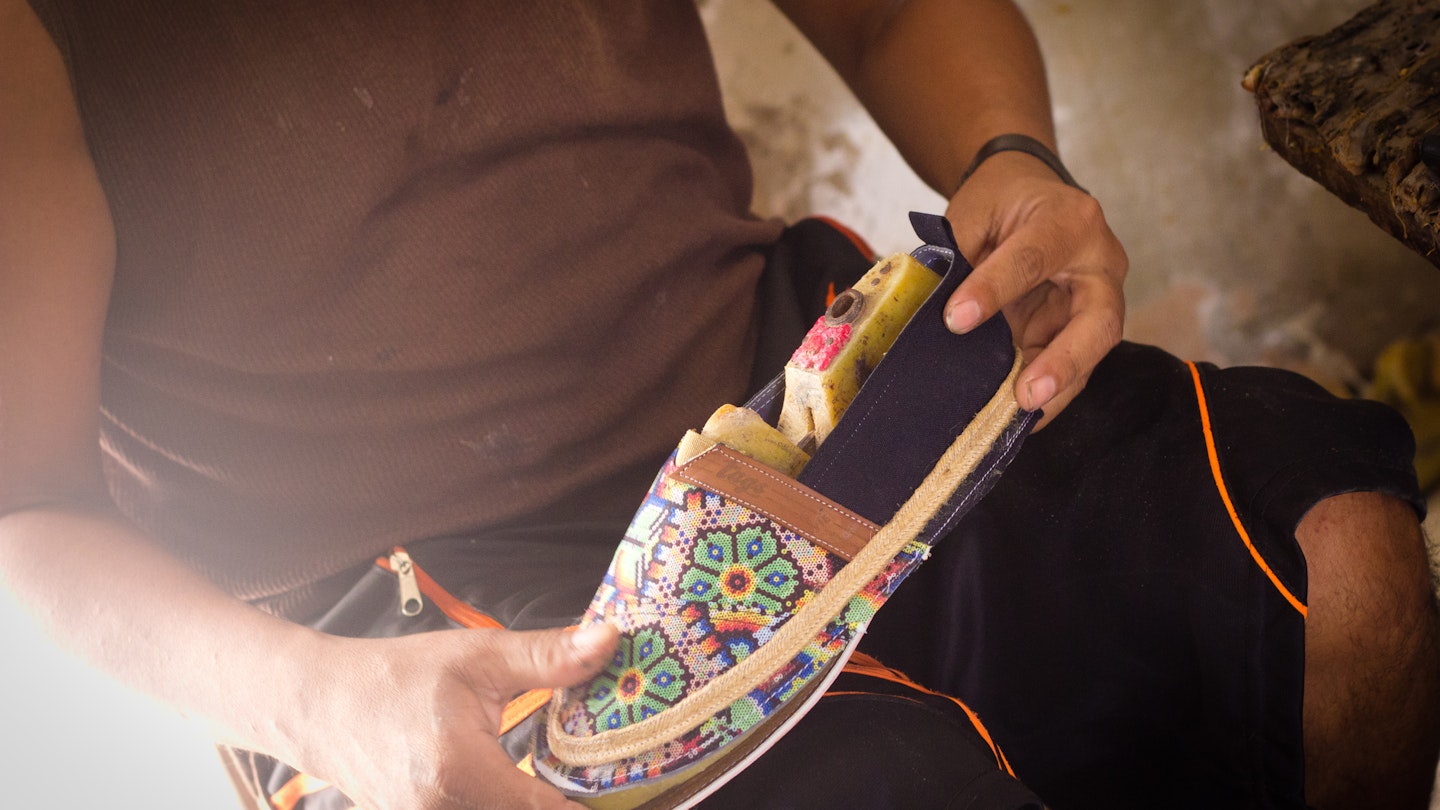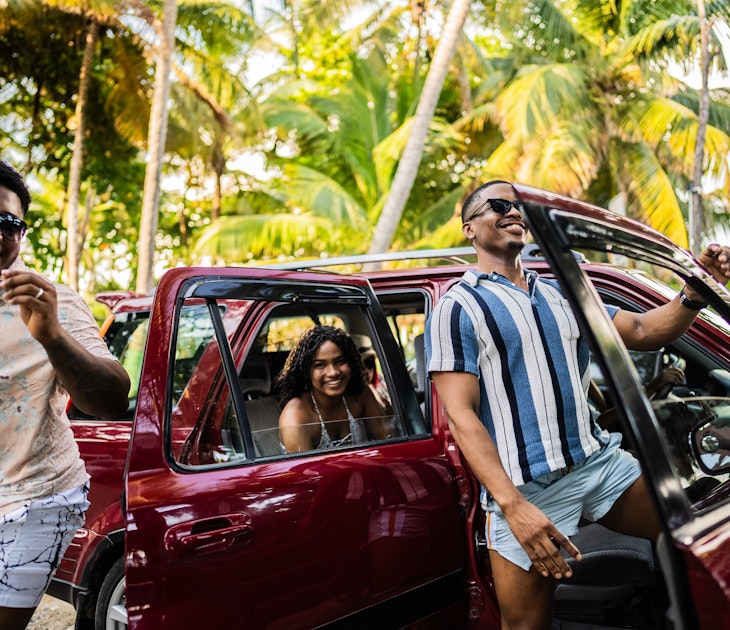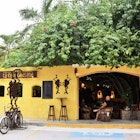Traveling throughout the Yucatán Peninsula is a feast for the eyes. Colorful Mexican handicrafts and folk artwork inspired by ancient Mayan motifs are showcased on virtually every corner. The Yucatán Peninsula is made up of three states – Quintana Roo, Yucatán, and Campeche – each renowned for specialty goods. Many artisanal products are created by indigenous people who are fighting to preserve their cultural heritage by sharing their art with the world.
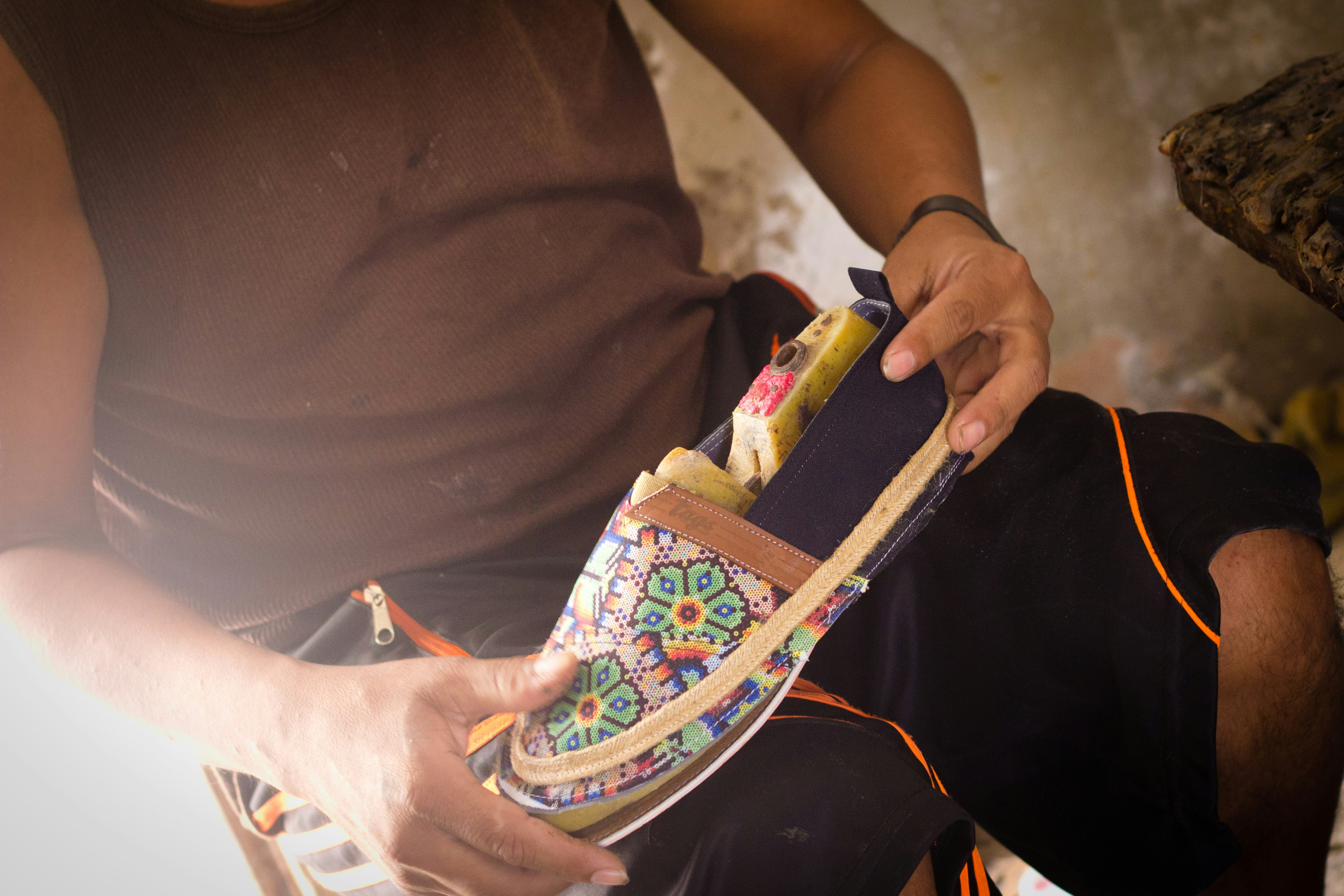
Educate yourself
Many artisanal products are created by indigenous people who are fighting to preserve their cultural heritage by sharing their art with the world. Unfortunately, major fashion brands and fast-fashion retailers rip off indigenous designs without properly compensating and crediting the communities who should benefit from their sacred symbolism being used for capitalistic gain. This summer, the cultural minister of Mexico, Alejandra Frausto, accused Venezuelan designer Carolina Herrera of cultural appropriation for using indigenous Mexican embroidery patterns of flora and fauna in the resort 2020 collection.
The intention likely wasn’t malicious – but it’s the impact that matters more than intent. By borrowing design elements from indigenous people, a brand not only appropriates their designs but also takes the earnings they’d receive for selling their traditional items directly to consumers. Instead, brands should ask indigenous people for permission to use a design and offer to pay tribute through employment or payment of royalty fees – should they choose to allow a brand to use them.
Top tip: Learn the origin of an item you’re interested in buying. Otherwise it’s difficult to determine whether you’re unknowingly contributing to cultural exploitation.
Market shopping
Most major towns have weekly outdoor markets where local artisans set up shop and sell their arts and crafts directly to tourists. This is one of the most meaningful ways to shop as you’ll have the chance to speak to the artists directly about their medium, inspiration, and the historic importance of a piece. It’s acceptable to ask the vendors if they made the goods themselves, and if they didn’t, ask how the goods are sourced so you can differentiate whether you’re contributing to artists or big business.
Top tip: Never haggle with an artisan over a handmade piece, if the price is too high for you, move along. Artists deserve to set their price for their work.
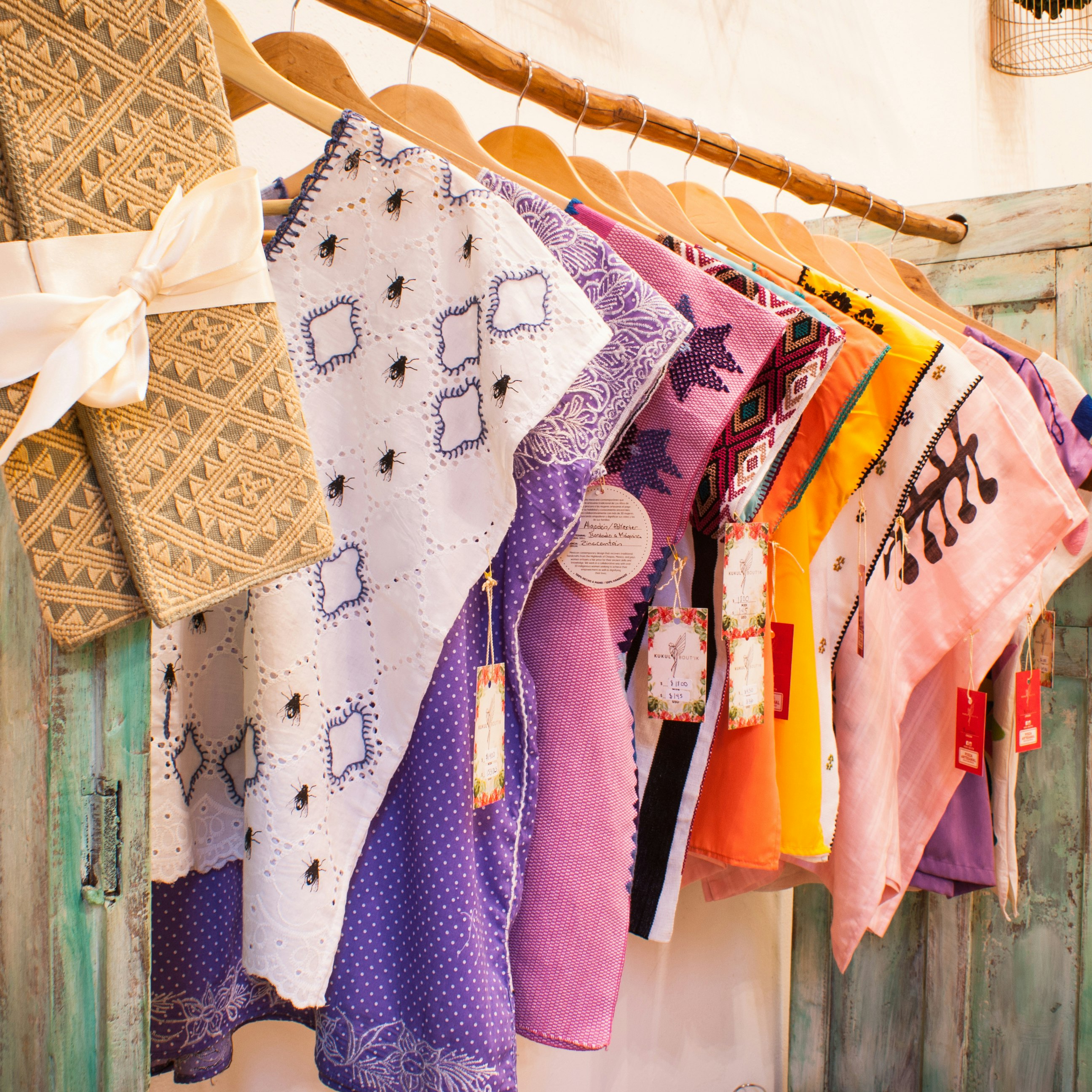
Boutique shopping
At boutiques, ask about a shop's business ethics, how they support their community, and whether they pay artisans fair wages for the goods. A genuine enterprise focused on people and not profit will be transparent about their sourcing and business practices.
Top tip: Avoid mass-chains who may source items from China and shop for artisan-made clothing, accessories, and homewares directly from the artists or from retailers with fair trade practices that support Mexican brands.

Indigenous communities
Many sustainable souvenirs will be one-of-a-kind, as most artisan goods are handmade and can’t be perfectly replicated. Ask around for local Mayan community cooperatives that create embroidery, woven goods, crafts, and more. Visit the Yucatán's smaller villages, which are home to unique crafts. Head to Halachó to purchase multi-colored woven coil basketry. In Bécal, you can purchase a world-famous Jipi hat made from the jipijapa palm. In Izamal, find colorful items such as tortilla warmers and coasters made from henequen fibers – nicknamed Green Gold, as the Haciendas that cultivated the plant brought wealth to the peninsula.
Top tip: Genuine handicrafts don’t come cheap – if something only costs a dollar or two, it’s likely not made sustainably. Remember it’s impossible that a laborer could have been paid fairly for their work when items are sold at such low prices.
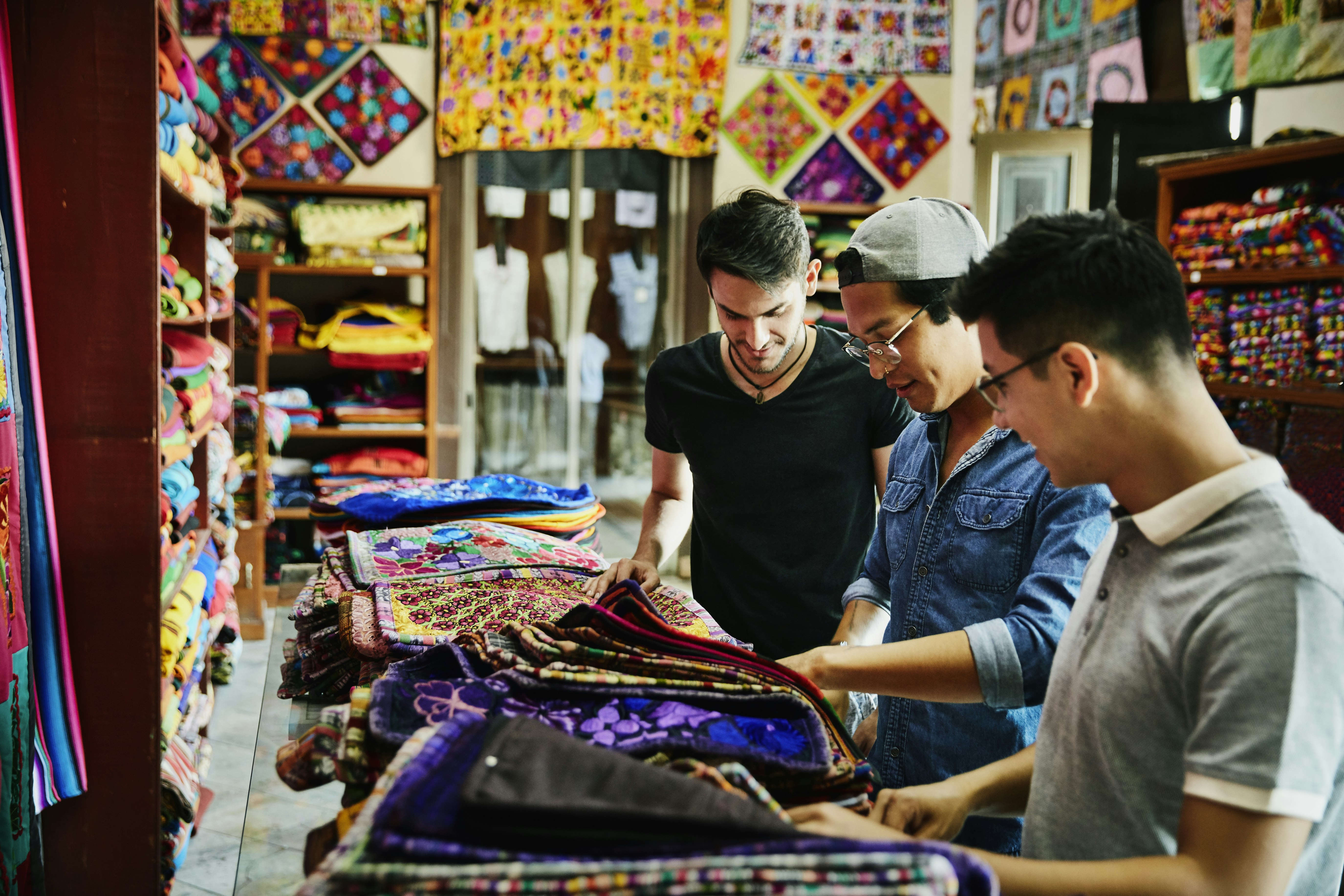
Where to shop in Mérida
As the capital of the Yucatan state, the cosmopolitan Mérida has shopping choices for all budgets and tastes but before you head out be sure to pick up a few traditional sabucan shopping bags to avoid using plastic bags.
Yucatecan specialties
- Colectivo Múul Meyaj: has an array of Yucatecan hand-made home goods and accessories to encourage Mayan communities to see the value of their crafts.
- Casa Bonita: exclusively sells Yucatecan designs and offers clothing, jewelry, and ethical beauty items. Tags Alpargatas: offers espadrilles handmade by a family of shoemakers in a nearby village, Hunucmá.
- Casa de las Artesanias: Government operated fair-trade, fixed priced items.
- Cielo Hamacas: B Corp and Fair Trade Federation Member sells hammocks locally-woven. 90% of their weavers are women from Mayan communities in the Yucatán Peninsula who work from home as a part of the brand’s Sustainable Holistic Empowerment Network. Their non-profit, Cielo Foundation, alleviates poverty, promotes gender equality, and inspires social entrepreneurship.
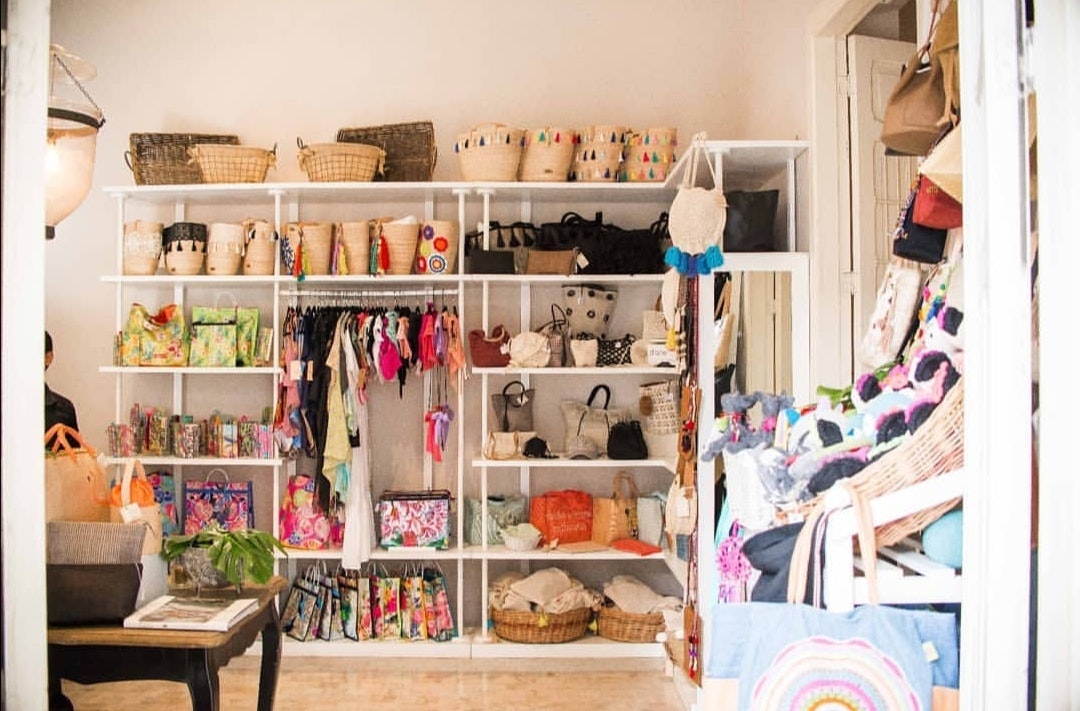
High-end Merida
- Casa T'hō has a collection of curated upscale boutiques
- Casa Lima sells perfume, soap, palm bags, and vegan candles. They also carry items from Angela Damman, a female-owned and operated collection of handbags and home decor made from local plant fibers and dedicated to reinvigorating rural communities.
- Kukul Boutik for artisan-made clothing, including colorful huipil dresses with embroidered flowers and guayabera, known as the Camisa de Yucatán.
Zero-waste Merida
Seek out items made by AlternativaCero founded by Ingrith León Cabrera, who also organizes the monthly Cero Basura Yucatán market. Her collection includes personal care products such as shampoo bars, toothpaste tabs, and body scrubs made with raw materials from local producers. The items can be purchased at Casa Bonita, Colectivo Muul Meyaj, and Monique’s Bakery. Monique helped to launch the Slow Food Market movement in Mérida which has stalls selling food made from scratch and local wares that focus on ethical living, including her bakery’s renowned homemade bread.
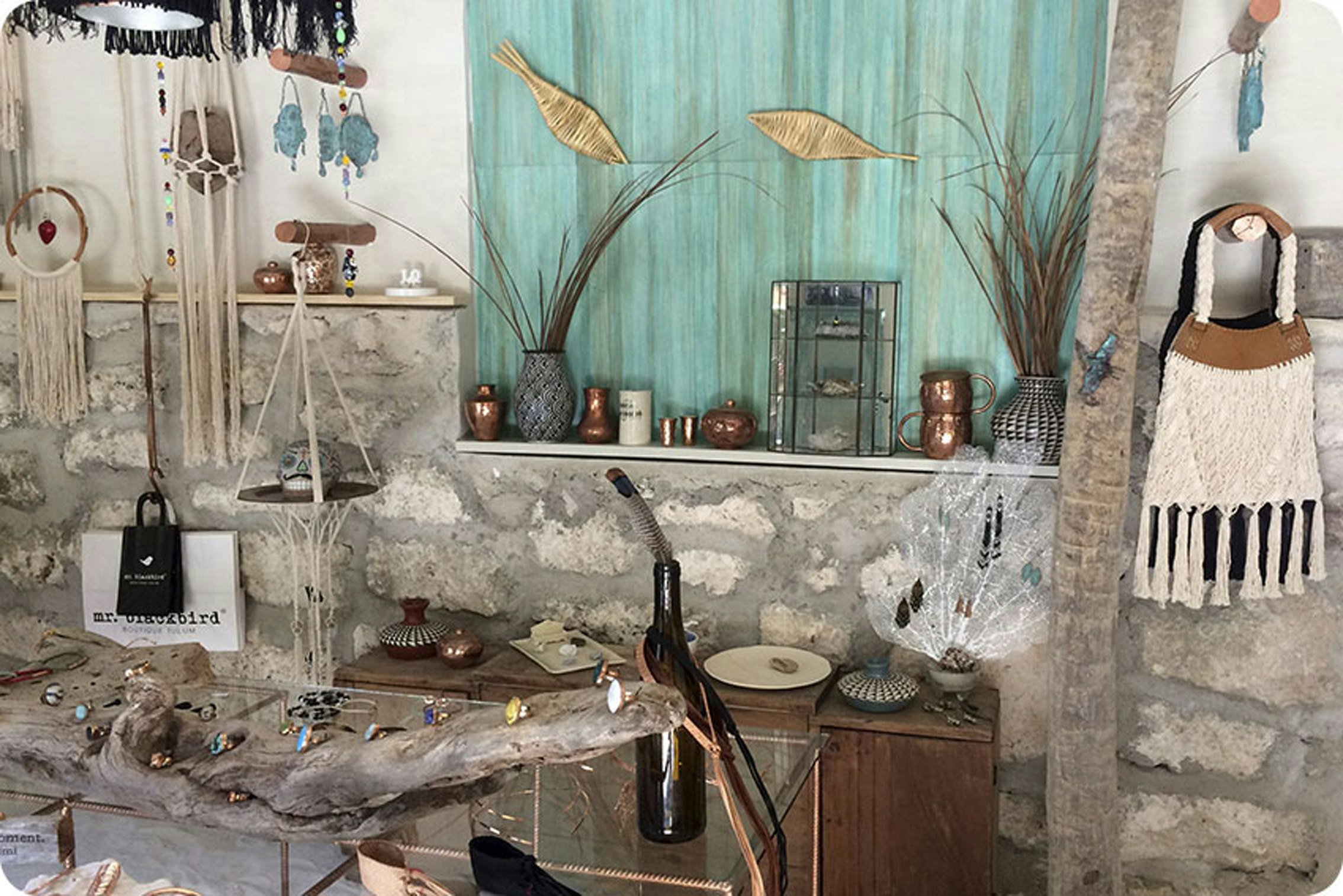
Where to shop in Tulum
- Caravana is the place in Tulum to splurge on a handmade in Mexico high-quality organic cotton wrap dress or poncho inspired by the Mayan culture and made by fairly paid artisans using traditional techniques.
- The female-owed Daria Tulum has a curated selection of hand-picked items largely focused on local Mexican, sustainable, female designers including Beatrice Valenzuela ready-to-wear and sandals handmade in Mexico, and the sustainable Mexican whimsical clothing brand Golondrina.
- For Mexican homeware and jewelry, shop at the solar-panel powered Mr. Blackbird store.
- Carla Fernández has wares crafted by Mexican artists including hand-dyed tops and woven ponchos.
- For zero waste items visit Co.ConAmor or La Minimal. Find vegan skincare packaged in eco-friendly bottles at Casa Selva Botanicals.

